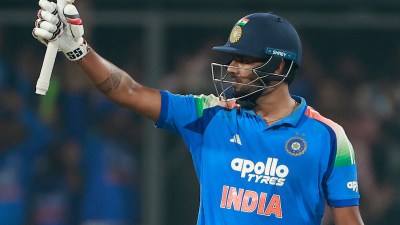How many children left behind?
School vouchers have been debated as a way of using public money to get underprivileged children access to private schools. An early report on a programme in the US gives ammunition to both supporters and critics of the plan

Students in the D.C. school voucher programme, the first US federal initiative to spend taxpayer dollars on private school tuition, generally performed no better on reading and mathematics tests after one year in the programme than their peers in public schools, the US Education Department said last week.
The department8217;s report, which researchers said is an early snapshot, found only a few exceptions to the conclusion that the programme has not yet had a significant impact on achievement: students who moved from higher-performing public schools to private schools and those who scored well on tests before entering the programme performed better in math than their peers who stayed in public school.
The results are likely to inflame a debate in the United States about using public money for private education. Many Democrats, who have long opposed such programmes, seized on the study as evidence that vouchers are ineffective.
But Republicans and other voucher supporters said it is too soon to judge. 8220;The report8217;s findings are in step with rigorous studies of other voucher programmes which have not typically found impacts on student achievement in the first year,8221; US Education Secretary Margaret Spellings said in a statement. 8220;We know that parents are pleased with the success of the programme in providing effective education alternatives.8221;
A Republican-led Congress created the 14 million-a-year programme in 2004. The five-year initiative provides 7,500 vouchers each year to 1,800 students, from kindergartners to high school seniors, who attend 58 private schools, most of them Catholic schools. Participants must live in the District and come from low-income families. Advocates say the programme offers an alternative to the troubled D.C. public schools.
Known as the D.C. Opportunity Scholarship programme, the initiative is one of the few government-run voucher systems in the country. Milwaukee and Ohio have similar plans, and Florida and Arizona offer vouchers to special education students.
In studies of those programmes and others funded with private money, researchers tended to find little improvement in test scores after one year, said Paul Peterson, director of Harvard University8217;s programme on education policy and governance. He said it takes time for students to adjust to new surroundings.
8220;Kids lose ground when they change schools. Even if they may be in a better school, they8217;re not going to adjust to that right off the bat,8221; he said. 8220;It doesn8217;t happen overnight. It8217;s a slow process.8221;
The report, released by the Education Department8217;s Institute of Education Sciences, examined test scores from more than 2,000 students who entered a lottery for admission to the voucher programme. Scores from students accepted in the programme were compared with scores from those who weren8217;t. The study followed two groups of students in their first year in the program, 2004-05 and 2005-06.
The study also found that parents like vouchers. Those whose children are in the programme were significantly more likely to rate their school with a grade of A or B than their public school counterparts.
Tiesha Lawrence said the voucher programme has been a boon for her 7-year-old son, Nickquan.
The Bush administration wants to expand vouchers nationwide through revisions in the No Child Left Behind law. But Democrats said the new report will make it easier for them to kill such proposals.
8220;This report offers even more proof that private school vouchers won8217;t improve student achievement and are nothing more than a tired political gimmick,8221; Rep. George Miller D-Calif., chairman of the House education committee, said in a statement.
Jeanne Allen, president of the Center for Education Reform, which supports vouchers, said she is confident that future reports on the programme will show greater gains. But she said the study should be viewed as validation of the programme.
8220;Does it help kids? Does it help families?8221; she said. 8220;I think the answer from this report is clearly yes.8221;
- 01
- 02
- 03
- 04
- 05































